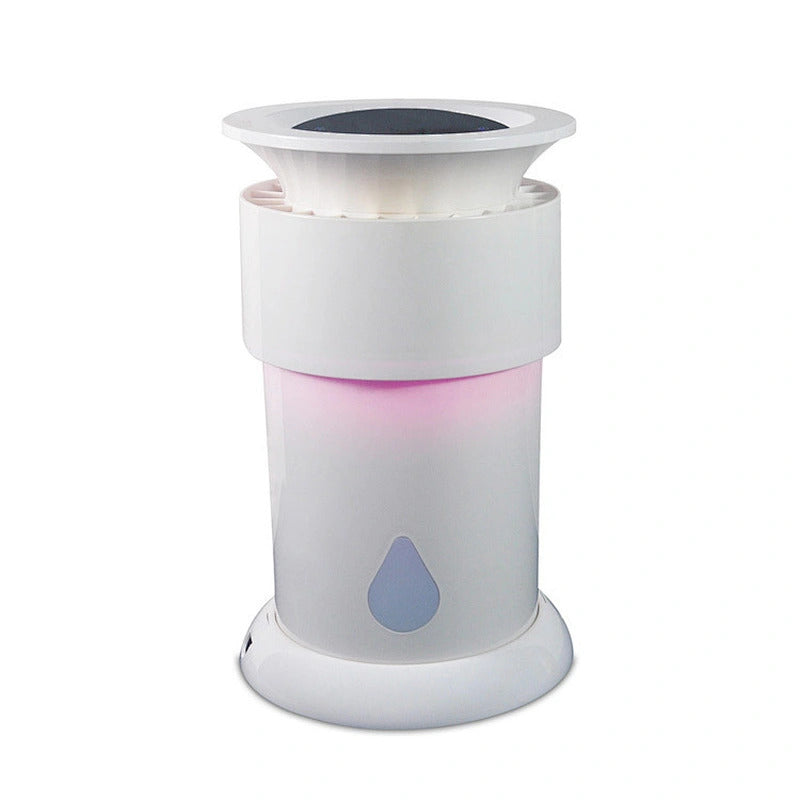# Type at least 1 character to search # Hit enter to search or ESC to close
Air purifier: an important barrier to protect family respiratory healt
Search
-
-
Air purifier: an ...
Apr 27, 2024 -
The daily use of ...
Apr 11, 2024
Archive
- April 2024
- March 2024
Custom Menu

Air purifier: an important barrier to protect family respiratory health
With the development of modern industry and the acceleration of urbanization, air pollution problems have become increasingly serious, especially indoor air pollution, which has become an important factor affecting people's health. In order to improve indoor air quality and protect the respiratory health of their families, more and more families are choosing to use air purifiers. This article will introduce the principles, functions and purchase considerations of air purifiers to help everyone better understand and choose an air cleaner suitable for their own family.

1. Principle of air purifier
The air purifier mainly uses the built-in filtration system to inhale the indoor air, intercept it through layers of filters, remove particles, bacteria, viruses, harmful gases and other pollutants, and then discharge the fresh air, thereby purifying the indoor air. Air Purpose. According to different working principles, air purifiers can be divided into mechanical, electronic, photocatalytic and other types.
2. The function of air purifier
Remove particulate matter from the air: Air purifiers can remove dust, pollen, smoke and other particulate matter from the air, effectively reducing the symptoms of allergic diseases, such as allergic rhinitis, bronchitis, etc.
Kill bacteria and viruses in the air: Some air purifiers use technologies such as ultraviolet sterilization or ozone generators to kill bacteria and viruses in the air and reduce the spread of respiratory diseases.
Remove indoor odors: Air purifiers can remove indoor odors such as smoke, pet odors, and musty smells, making indoor air fresher and more pleasant.
Improve sleep quality: Good indoor air quality helps improve sleep quality, reduce the number of awakenings during the night, and allow people to spend a good night in a comfortable environment.
Protect the health of pregnant women and children: Pregnant women and children have higher requirements for indoor air quality. Using air purifiers can reduce their risk of respiratory diseases and protect the health of mothers and children.
Improve work efficiency: Fresh indoor air can help improve people's work efficiency and creativity, and reduce headaches, eye fatigue and other symptoms caused by poor air quality.
Delay furniture aging: Harmful substances in the air can cause damage to furniture and cause it to age prematurely. Using an air purifier can reduce the accumulation of dirt on the surface of furniture and extend the service life of the furniture.
Save energy: Good indoor air quality helps reduce the energy consumption of air conditioning and heating equipment, because when indoor air quality is poor, these equipment need to consume more energy to maintain indoor temperature and humidity comfort. Using an air purifier can improve indoor air quality, thereby saving energy and lowering your electricity bill.
3. Things to note when purchasing an air purifier
Confirm purchase needs: First of all, you must clarify your purchase needs, such as what type of air pollution needs to be purified (PM2.5, formaldehyde, bacteria, etc.), the size of the family room, and the budget. This helps you sort through the many brands and models to find the one that suits you best.Understand product performance: Pay attention to the product's CADR value (clean air output rate) and CCM value (cumulative purification capacity). The higher the CADR value, the stronger the purification ability of the product; the higher the CCM value, the better the durability of the product. At the same time, we should also pay attention to performance indicators such as noise level and energy consumption of the product.
Choose the right filter: The filter is the core component of the air purifier, and different types of filters are suitable for different purification needs. Common filter types currently on the market include HEPA filters, activated carbon filters, photocatalyst filters, etc. Consumers should choose the appropriate filter type based on their actual needs.
Check product certification: Choose air purifier products certified by authoritative organizations, such as China Compulsory Product Certification (CCC), American Association of Home Appliance Manufacturers (AHAM) certification, etc. This ensures product quality and safety.
Compare prices and after-sales services: Before purchasing, you can compare prices and after-sales services of different brands and models. High-quality after-sales service can provide consumers with better user experience and protection. At the same time, pay attention to the warranty period of the product and the cost of filter replacement.
Understand user reviews: Check other consumers’ reviews and feedback on the target product to learn about their experiences and suggestions during actual use. This helps identify potential problems and make more informed purchasing decisions.
In short, in the face of the increasingly serious indoor air filter problem, purchasing a suitable air filter is of great significance to protect the respiratory health of your family. I hope this article can provide you with useful reference and help in the purchase process.
© 2024 HDL. All Rights Reserved | (+86) 13427531281/13809778914 | hdlcn@vip.163.com/info@ceraflo.cn





